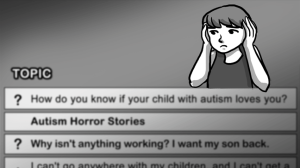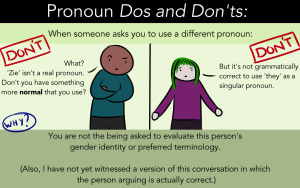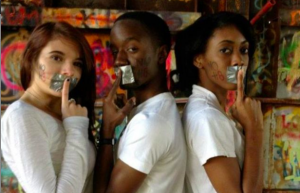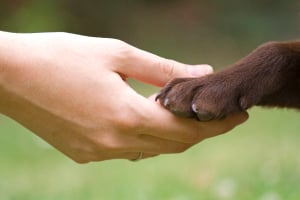Originally published on Adios Barbie and cross-posted here with permission.

Credit: Jamie McCartney, creator of the art exhibit, The Great Wall of Vagina, which is 400 plaster casts of vulvas taken from women between the ages of 18 and 76 with the intent of “changing female body image through art.”
As a sex educator with a specialization in body image, I receive a lot of anonymous messages in my Tumblr inbox from people wanting to know if their body is “good enough” for sex.
Will my boyfriend be disgusted if my breasts are uneven? How small is “too small” for a penis? How do I get over the fear of my body jiggling when I’m on top?
And overwhelmingly, increasingly:
Is my vagina dirty? How do I know if my vagina looks/smells/tastes right? Can I use soap “down there?” Or perfume or deodorant or douches? Should I shave? Should I get surgery?
It’s exhausting.
Believing strongly in comprehensive sex education – that is, that everyone deserves access to allinformation – I find these questions tremendously difficult to answer.
On the one hand, I have to be honest with my followers and let them know the truth about how their body works and which “solutions” to their “problems” exist and are safe.
But I also need to steer them in the right direction toward body-positivity. I give them their answers, but I also make sure to explain that the realproblem is the one that’s inside of their head – that the voice nagging that their bodies just aren’t right is what’s really wrong.
That’s not the answer that they’re looking for. But it’s the truth.
Part of teaching people to accept, own, and respect their bodies and the bodies of others is helping them to unlearn the social myths that they’ve been sold and to provide accurate information about their bodies.
So, for women with vaginas*, here’s a primer that outlines four myths that keep us from loving our vulvas – and from loving ourselves.
*This article is written with cis-gendered women in mind. In writing this piece, I did not feel that I had the experience or the expertise necessary to tackle these issues from a gender variance perspective. Any insight into how these issues affect people outside of the cis-woman box is welcome and appreciated in the comments section.
Four Ways That We Hurt Our Vulva’s Feelings – And Our Body Image – And the Truth Needed to Combat It
1. Not Calling It By Its Name.
I get it. The female genitals are complicated. There’s a lot going on, and so some people might not know the correct name for every part.
Although that’s certainly perfectly acceptable, it’s also something that you can fix if you want to.
Learning what your parts are called and being able to identify them (invest in a hand mirror) and their functions helps you become more comfortable with your equipment and better able to explain your needs and wants to doctors and partners alike.
Here’s one quick anatomy lesson that will serve you well: The word “vagina” actually only refers to the internal part of the genitals – the orifice that ends at your cervix.
We tend to use the word to describe the entirety of the genitalia, including its external parts, but that – what you can actually see– is called a vulva. Practice distinguishing between the two and being specific about what you mean when you’re talking about your genitals.
Even if you don’t want to learn the name for every single part, at the very least, try to avoid referring to it with a euphemism. “Down there?” “Flower?” “Cookie?” “Honeypot?” “IT?”
Using childish names to refer to your genitals reinforces the idea that they’re too unspeakable to call by name and furthers the stigma that scares women off from owning their bodies.
If you wouldn’t refer to your arm – or your leg or your back or your ear – using a euphemism, then why would you use one to talk about your vulva or vagina? They’re body parts, too – and they’re ones that we need more practice acknowledging.
2. Thinking It’s Dirty.
Oh, your vagina. It constantly secretes fluid. It sweats. Sometimes it bleeds. It does a whole lot of things that other mucus membranes – like the nose, eyes, and mouth – do that we tend to find icky.
And while this aversion certainly isn’t vagina-specific (I think we can agree that a bloody nose or mucus-secreting eyes aren’t pleasant either), what is vagina-specific is thinking that these normal, natural, healthy physiological responses are somehow connected to hygiene and cleanliness.
The truth of the matter is: just like your nose will run or your underarms will sweat, your vagina – if it’s healthy and working properly – will do these things, too! That’s agood thing.
Vaginas are actually pretty cool. I know that I’m biased because I’m a sex educator and a loud-and-proud feminist, but seriously, hear me out.
The vagina houses inside of it its own little ecosystem – like a lush little rainforest that’s warm and moist – and as such, can completely take care of itself. And just like a rainforest, the worst thing that can happen to it is human interference.
It takes care of itself. It cleans itself. It doesn’t need help! Trying to clean your vagina – using soap, shampoo, powder, deodorant, douches, or even (eek!) bleach – actually has a better chance of giving you an infection than it does of making your vagina healthy and happy.
In short: Leave it alone!
But if you want to help it along, that’s okay. Using a gentle soap between your inner thighs and your groin area is fine, so long as you keep it away from your vulva. To wash your vulva, you can cup some water into your hand in the shower and gently rub between the folds, wiping away any sweat and dirt that may have accumulated there.
For daytime wear, invest in some cotton panties and avoid wearing tight-fitting pants. At night, if and when possible, sleep commando to give yourself some air.
And I promise that you’ll find this process much more accommodating (and successful!) than using soaps and perfumes.
3. Thinking It Smells or Tastes Wrong.
A friend of mine once told me a story about an ex-lover of hers who, when approached by my friend about how she was supposed to smell and taste, looked at her quizzically and told her, “It smells and tastes like pussy. It’s supposed to smell and taste like pussy.”
Which is true. But oh, how we forget and opt for Fresh Rain or Lilac instead.
But the truth is: If someone is putting his or her head between your legs, the smell and taste that they’re craving – and yes! (gasp!) people really do crave it – isn’t precipitation or a bouquet.
The right way for your genitals to smell is—well—like genitals.
For some women, the fear that they smell or taste “wrong” is deeply-rooted in the social myth that vaginas are dirty. Some women fear that if they don’t smell or taste fresh, then it must be indicative of how unhygienic they are.
To compensate, some women powder their vulvas or slather them with flavored lube.
The goal? To make their vaginas smell and taste as least like a vagina as possible.
But this is an unfounded fear, driven by the simple fact that most women don’t even know what they are supposed to smell or taste like.
Every vagina and vulva is different. They don’t all smell or taste the same.
However, there are some commonalities around what an average, healthy vagina smells and tastes like. It should smell like you’d expect any warm, moist human body part that spends most of its time in the dark to smell like – a little bit dank and musky, sometimes musty, and sometimes kind of like vinegar.
And its taste, dependent upon where in your cycle you are (and therefore, the consistency of your cervical fluid), should range from salty to tart to slightly sour.
You only need to worry about it if the taste or smell of your fluids changes drastically and suddenly, especially if it’s accompanied by other symptoms. This handy-dandy chart is a great reference for the symptoms, including odor, related to bacterial vaginosis (BV), yeast infections, and trichomoniasis.
It’s also good to have an idea of what might constitute gonorrhea or chlamydia. If you’re experiencing any of the associated symptoms of these five infections, then it’s worth seeing a doctor to make sure that you are accurately diagnosed and treated.
Still worried about your smell or taste? Amazingly, it’s greatly affected by your diet.
Eat less red meat and fewer dairy products. Avoid coffee, cigarettes, marijuana, and alcohol. Instead, eat more leafy green vegetables, fruits (especially pineapple and strawberries), cinnamon, and cardamom. The former produce a taste that’s more bitter; the latter, a taste that’s sweeter.
And if you want to dab a touch of perfume on either side of your inner thighs before playtime, go for it!
But don’t let society tell you that your natural smell and taste isn’t perfectly fine.
4. Comparing It to Idealized Images.
I’ve said it before, and I’ll say it again: If you wouldn’t compare your face to that of a movie star’s, then don’t compare your genitals to that of a porn star’s. They’re chosen because they have those idealized attributes, and they do not represent the vast reality of what an average vulva (NSFW) looks like.
Porn is not real life, especially if your exposure is to mainstream pornography only. And if you (or your partners) are getting ideas about what a vulva “should” look like based on media imagery, then listen: STOP! And then check out this awesome exhibition, The Great Wall of Vagina, that’s working on “changing female body image through art.”
The producers of pornography have a habit of favoring certain body types, just like the general mainstream media. Now, if you received everything that you know about penises from pornography, then you would have a really warped view of what penises look and act like.
You might be apt to think that the average penis is 8 inches long (it’s 5-6), ejaculates cups of semen (just about a teaspoon, actually), and can delay orgasm for an hour or more (3-8 minutes is average).
Well, the same thing goes for vulvas. Not all vulvas are small, plump, pink, hairless, and have virtually no labia minora.
Nope. The average vulva is as varied – and as beautiful! – as our faces and our bodies.
Don’t buy into the bullshit notion that everyone’s vulva is supposed to look the same, or that there is only one way that a vulva can (and should) look.
And definitely don’t believe the nonsense about so-called labial hypertrophy, a completely made-up, not-even-medical-even-though-it-passes-itself-off-as-such term to describe the “deformity” of having inner labia that are longer or thicker than your outer labia.
The only people using that phrase are cosmetic surgeons (who need to make you feel awful about yourself by inventing medical deformities that don’t exist to get you into their offices) and women on Yahoo! Answers wondering how common this “affliction” (ugh!) is.
The recent uptrend in vagino- and labiaplasty – that is, cosmetic surgery for your vagina or vulva – is a good sign that we’re becoming obsessed with finding and obtaining, as one documentary calls it, “The Perfect Vagina.”
The problem, though, and the thing that these surgeons won’t tell you, is that it’s already perfect the way that it is! Seriously.
* * *
I do believe in body love, and I do believe that vulva-love is an integral part of it. Positive body image needs to encompass our whole bodies, not just the parts that we like and are comfortable with.
And in a society that teaches us constantly that female genitalia, by default, is offensive, we have a lot of work to do insofar as unlearning all of the bullshit and filling ourselves with enlightenment.
So let’s start a conversation – with ourselves, with our friends, with our sisters and our daughters.
Because if we can address the discomfort, then we can eradicate the fear, and maybe we can have a generation of women who love their vulvas, love their bodies, love themselves.
Melissa A. Fabello is a Contributing Writer for Everyday Feminism, a feminist blogger and vlogger, as well as an online peer sex educator, based out of Philadelphia. Along with Everyday Feminism, Melissa also currently works with Miss Representation, Adios Barbie, and Laci Green’s Sex+ community. She is a second-year graduate student, working on an M.Ed. in Human Sexuality. She can be reached on Twitter @fyeahmfabello.
Search our 3000+ articles!
Read our articles about:
Our online racial justice training
Used by hundreds of universities, non-profits, and businesses.
Click to learn more




















